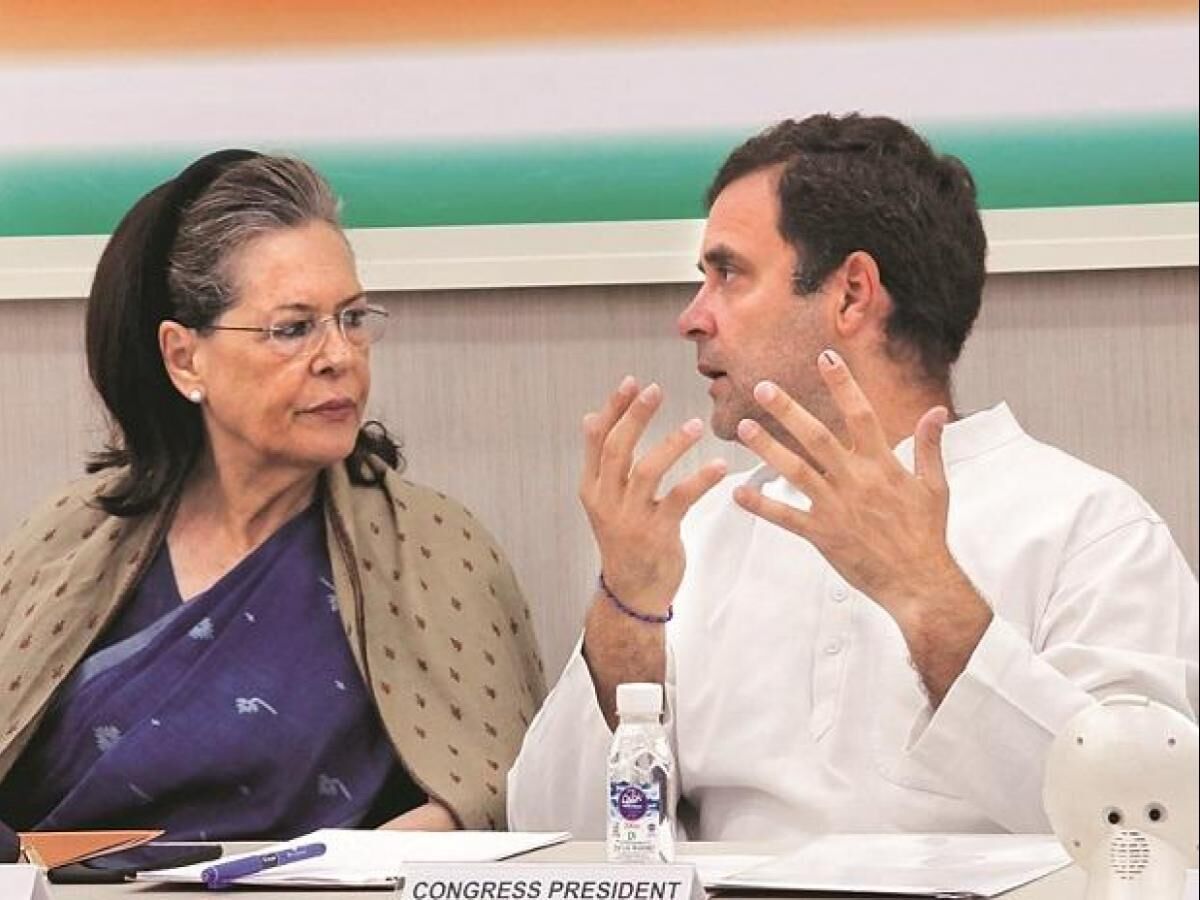Congress: the new fringe
- By : Anirban Ganguly
- Category : Articles

INC’s increasing endorsement of ‘extremist’ parties marks a shift in its politics where ‘national interest’ is now accorded secondary status
That the Congress is increasingly veering to the fringe is becoming clear with each passing day. One had expected that with the gradual retirement, side-lining or ageing of the original fringe within the Congress represented by caricatures such as Mani Shankar Aiyar, the Congress would re-centre itself to the mainstream, but that has not happened. This certainly leads one to conclude that the Congress, under Sonia and Rahul, has adopted the path to the fringe as an established policy and is emerging as the new fringe. In the past, the Congress’s obsession with ‘fascism’ was theoretical but today, that obsession repeatedly expresses itself through political action and articulation. The Congress’s fascination with the fringe is also increasingly leading it to represent the fringe at the top echelon of its leadership.
During the past two years, between 2020 and 2021, the Congress leadership, especially Rahul Gandhi has, on different occasions, taken stands on China’s belligerence or Pakistan’s perfidy which have been lauded by the leadership of both these countries. The Congress party’s memorandum signed with the CPC, its refusal to call out the Chinese or the Pakistanis for their adverse posturing against India, its support for Khalistani elements which stormed the Red Fort last January and desecrated the Tricolour, its continued endorsement of such elements which had infiltrated the farmer’s protest, its silence on Khalistanis and Pakistanis undertaking a ‘gherao’ of some Indian missions abroad, all point to the Congress leadership’s silent and vocal endorsement of the fringe. It establishes that the party is increasingly identifying itself with the politics and the agenda of the fringe.
The Rahul and Sonia Gandhi Congress’s recent and most abominable behaviour was when its rank and file, from the Chief Minister of Punjab to its chits of spokespersons and leaders cheered Prime Minister Narendra Modi’s security breach in Ferozepur on 5th January. While both Sonia and Rahul maintained silence and refused to as much as express concern over it, Congress minions, starting with its leader of opposition in the Lok Sabha, the incorrigible Adhir Ranjan Chowdhury to its Chief Minister Channi treated the whole issue casually, politicised it and refused to act or to take people to task. The Congress drain-band on social media could not hide its ebullience at this attempt to severely compromise the life of the Prime Minister of India. That there was a well-laid conspiracy in a Congress-ruled state was evident to all who studied the unnerving episode.
But must we be all that surprised at the Congress’s veering towards the fringe; is it a new found phenomenon seen only in its grassroots rank? The reality is otherwise. The Congress’s endorsement of the fringe is a well calculated and well-adopted policy directed from its top. This is best seen in the manner in which the party has approached and mingled with the Islamist fringe in India over the last few years. Let us recall:
The Indian Union Muslim League (IUML) formed in 1948 was an exclusively Muslim party across India and not just in Kerala. Its exclusive denominational identity led the CPIM led Left Democratic Front (LDF) and the Congress-led United Democratic Front (UDF) to compete between themselves for the IUML’s support.
With the formation of Abdul Madani’s Peoples Democratic Party (PDP) in 1993, the PFI’s SDPI in 2009 and Jamaat-e-Islami Hind (JIH)’s political wing Welfare Party of India (WPI) in 2011, the options of selecting from amongst the fringe increased for both the communist and Congress alliances. The Congress had usually rooted for the IUML. That communal alliance has been closely and cleverly camouflaged so that the Congress’ self-certified secular credentials remain untainted.
But the Congress’s unabashed support for the fringe in JNU in February 2016, when its leaders led by Rahul jumped in support of the fringe demanding India’s dismemberment, demonstrated that the party was in the advance grip of the fringe. That this shift was driven from the very top was exposed when Rahul Gandhi decided to contest from Wayanad. It drove CPIM state secretary Kodiyeri Balakrishnan to comment that the Muslim League which has formed an alliance with Jamaat and SDPI ‘has more influence in Wayanad than Congress’ and so Rahul Gandhi was, in effect, the joint candidate of the Congress-Jamaat-PFI-SDPI and IUML. Balakrishnan asked whether by aligning with such extremist parties the Congress would defeat the BJP.
But there was no shift or change in Balakrishnan’s own party in Kerala or at the Centre. The CPIM’s unconditional and unthinking support of the Sonia and Rahul Congress and of the fringe itself has continued unabated. While it cried in Kerala, the CPIM stuck to its policy of subtly applauding the Congress and its support for the fringe all over the country.
To recall another instance, during the 2018 Karnataka elections the SDPI, having announced its decision to field 25 candidates, withdrew them from nearly all seats so that it could benefit the Congress. One may also recollect that in 2015, the Siddaramaiah led Congress government in Karnataka had decided to withdraw a large number of cases against the PFI’s referring to its arson and rioting as mere protests.
In the 2017 elections to the Uttar Pradesh assembly, the SDPI had officially declared its support for the Congress-SP alliance with its vice president declaring that the party’s support to the SP-Congress alliance was to ‘defeat the communal and fascist forces’ and to keep them away from ‘capturing the throne in Uttar Pradesh and be a majority in Rajya Sabha…’
The established trend in the past saw mainstream political parties such as the Congress and the communists offer sops during elections and implement special schemes and concessions once in power, but that has been gradually pushed aside as a policy with the emergence of Muslim only parties. Most of these Muslim only parties are driven by the extremist Islamist ideology. The Congress is becoming their principal political prop and partner and is often seen crossing the line between national interest and short-term political gain.
Interestingly, most of these extremist outfits, radical in their actions and reactions, describe themselves as champions and upholders of democratic values, human rights and pass themselves off as caretakers of Muslims, Dalits and Janajatis. That these terms are simply a veneer to hide the reality was seen in 2019, when eleven Dalit leaders from Kerala resigned from the WPI citing untouchability in the party. ‘The Welfare Party always projected its’ politics as a fight for social justice for the oppressed identities, but at the same time, the Dalit leaders in the party are not allowed to speak about their identity inside the organisation. This is the system prevailing in the party, it is anti-democratic’, Pradeep Nemmara, a Dalit leader had then lamented.
The Congress, thus, by aligning with such regressive outfits as the SDPI, by lauding the Khalistanis, by breaking bread with those who eye India’s territory, by resolutely defending those who conspire to jeopardise the life of India’s Prime Minister, by habitually speaking the language of extremism, is the new fringe in Indian politics.

















